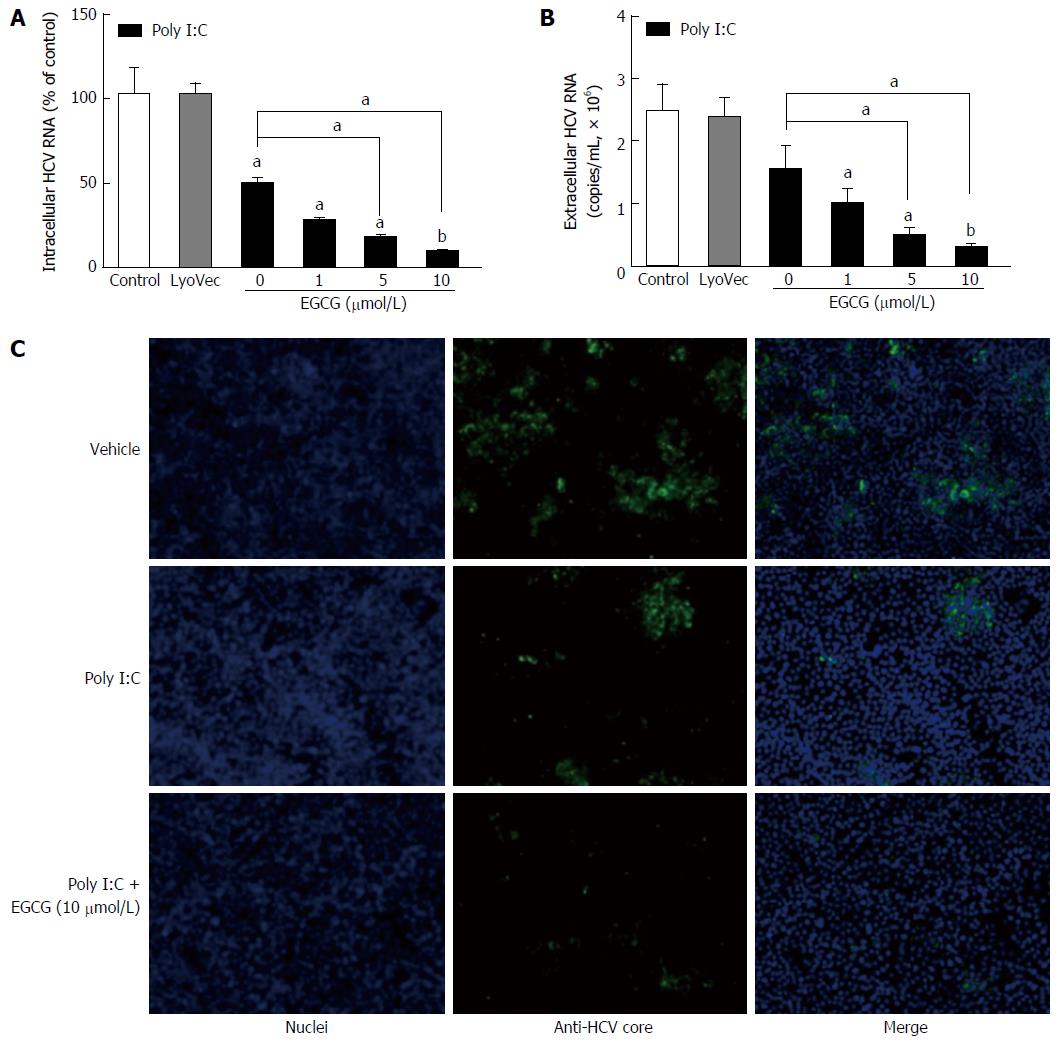Copyright
©The Author(s) 2017.
World J Gastroenterol. Aug 28, 2017; 23(32): 5895-5903
Published online Aug 28, 2017. doi: 10.3748/wjg.v23.i32.5895
Published online Aug 28, 2017. doi: 10.3748/wjg.v23.i32.5895
Figure 3 (-)-Epigallocatechin-3-gallate contributes to poly I:C-mediated inhibition of hepatitis C virus replication.
JFH-1-infected Huh7 cells (72 h post-infection) were treated with EGCG at the indicated concentrations for 1 h prior to poly I:C (1 μg/mL) stimulation. Intracellular (A) and extracellular (B) RNA was extracted from the JFH-1-infected Huh7 cells or culture SN after 48 h of stimulation and subjected to real-time reverse transcription-polymerase chain reaction for HCV and GAPDH RNA quantification. The intracellular hepatitis C virus (HCV) RNA level is expressed as the HCV RNA level relative (%) to the control (vehicle only, which is defined as 100%). Extracellular RNA levels are expressed as copies/mL. The results shown are the mean ± SD of triplicate cultures representative of three experiments (Poly I:C vs LyoVec, aP < 0.05, bP < 0.01). HCV core protein expression (C) was determined by immunofluorescence staining with an antibody against the HCV core protein (green) after 48 h of stimulation. The nuclei were stained with Hoechst 33342 (blue). One representative experiment is shown (original magnification: × 200). EGCG: (-)-Epigallocatechin-3-gallate.
- Citation: Wang YZ, Li JL, Wang X, Zhang T, Ho WZ. (-)-Epigallocatechin-3-gallate enhances poly I:C-induced interferon-λ1 production and inhibits hepatitis C virus replication in hepatocytes. World J Gastroenterol 2017; 23(32): 5895-5903
- URL: https://www.wjgnet.com/1007-9327/full/v23/i32/5895.htm
- DOI: https://dx.doi.org/10.3748/wjg.v23.i32.5895









